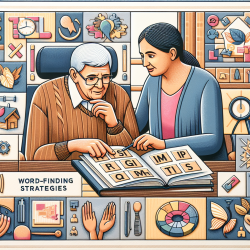The field of men's mental health is gaining increasing attention, particularly concerning the impact of childhood and adolescent adversities. The New York Declaration, a significant research initiative by members of the World Federation of Societies of Biological Psychiatry's Task Force on Men's Mental Health, provides valuable insights into this area. This blog aims to guide practitioners in improving their skills by implementing the outcomes of this research or encouraging further exploration.
Understanding the Impact of Childhood Adversities
The New York Declaration highlights the unique vulnerabilities boys and young men face due to childhood physical abuse and psychological trauma. Unlike girls, who are more likely to experience sexual abuse, boys often endure physical abuse and trauma. This includes severe incidents such as burning and scalding, leading to higher hospital admission rates for boys compared to girls.
The physiological impact of such abuse is profound, altering the developing central nervous system and disrupting multiple functional domains. Testosterone and other male sex hormones exacerbate these effects, making boys more susceptible to clinical presentations of psychiatric disorders. This vulnerability extends to specific genetic factors, such as the serotonin transporter gene (5-HTTLPR), which heightens the risk for depression and aggressive behaviors when combined with childhood trauma.
Interventions for Practitioners
Practitioners can enhance their therapeutic approaches by integrating evidence-based interventions tailored to male youth's needs. The research underscores the importance of addressing externalizing behaviors often exhibited by boys following trauma. Traditional behavioral management programs may not suffice; instead, therapies focusing on emotion regulation deficits are crucial.
- Child–Parent Psychotherapy (CPP): A dyadic intervention for children up to age 5 that emphasizes attachment-based therapy.
- Trauma Affect Regulation: Guide For Education and Therapy (TARGET): A skill-based intervention targeting trauma-induced responses through structured sessions.
- Trauma-Focused Cognitive-Behavior Therapy (TF-CBT): A comprehensive intervention addressing various aspects of trauma through child and parent sessions.
- Cognitive-Behavioral Intervention for Trauma in Schools (CBITS): Designed for middle and high school settings, integrating skill-based and interpersonal elements.
- Parent–Child Interaction Therapy (PCIT): Combines behavioral therapy with play therapy for young children and their caregivers.
- Trauma and Grief Component Therapy for Adolescents (TGC T-A): Targets adolescents with a focus on cognitive-behavioral theory.
The Role of Education and Public Health Initiatives
Education is paramount in reducing childhood adversities. Both professionals and the general public need awareness about the unique vulnerabilities of male children to physical abuse. Public health initiatives should integrate fathers into interventions despite challenges. Training across diverse service systems is essential to understand abuse's role in men's development.
Encouraging Further Research
The New York Declaration serves as a preliminary communication highlighting future directions for research in men's mental health. Practitioners are encouraged to delve deeper into this field, exploring novel therapeutics that align with emerging knowledge about men's mental health in children and adolescents. Regulation-Focused Psychotherapy for Children with Externalizing Behaviors (RFP-C) exemplifies such innovative approaches.
As understanding grows regarding how male sex hormones influence central nervous system development, psychotherapeutic strategies should evolve accordingly. Integrating mind-based therapies with brain-based pharmacotherapeutics can offer comprehensive care addressing both psychological and physiological aspects of trauma.
This blog has outlined key insights from the New York Declaration, offering practitioners guidance on enhancing their skills through evidence-based interventions and encouraging further exploration into this critical area of mental health.
To read the original research paper, please follow this link: Future Directions Concerning the Impact of Childhood and Adolescent Adversities in the Field of Men’s Mental Health: The New York Declaration.










